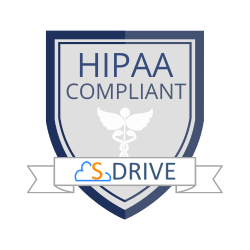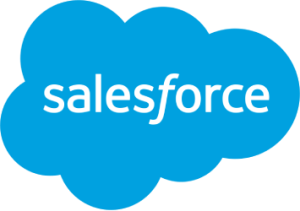Managing Protected Health Information (PHI) is a critical responsibility for organizations in the healthcare industry. Compliance with the Health Insurance Portability and Accountability Act (HIPAA) ensures the confidentiality, integrity, and availability of sensitive patient data. For healthcare providers and compliance officers, finding the right tools for HIPAA-compliant document storage in Salesforce can simplify data management while meeting strict regulatory requirements.
Salesforce offers robust capabilities to support HIPAA compliance when paired with secure document management solutions. In this blog, we’ll explore what makes document management software HIPAA-compliant and highlight the key features that support regulatory adherence.
What Is HIPAA-Compliant Document Management Software?
HIPAA-compliant document management software is designed to handle PHI securely and adhere to the regulations outlined in the HIPAA Privacy and Security Rules. These solutions protect sensitive data from unauthorized access, ensuring compliance with administrative, physical, and technical safeguards.
For organizations using Salesforce to manage workflows, integrating HIPAA-compliant document storage ensures seamless access to PHI while maintaining data security. These systems not only prevent breaches but also streamline operations, enabling healthcare professionals to focus on patient care.
Key Components of HIPAA Compliance
- Encryption: All PHI must be encrypted both at rest and in transit to prevent unauthorized access.
- Access Control: Only authorized individuals should have access to PHI, with role-based permissions enforced.
- Auditability: Detailed logs must track every interaction with stored data, ensuring transparency and accountability.
- Data Integrity: Systems should protect PHI from tampering, ensuring records remain accurate and complete.
Organizations must choose document management solutions that address these requirements, particularly when storing and sharing data within Salesforce.
Key Features of HIPAA-Compliant Software
When evaluating solutions for HIPAA-compliant document storage in Salesforce, it’s essential to prioritize features that align with regulatory standards. Below are some of the critical capabilities to look for:
1. Data Encryption for Maximum Security
Encryption is a cornerstone of HIPAA compliance. HIPAA-compliant software should use strong encryption protocols to secure PHI at rest and during transmission. This ensures that sensitive data remains protected, even in the event of a breach.
By encrypting files within Salesforce, organizations can confidently store and share sensitive information while mitigating risks associated with unauthorized access.
2. Customized Access Controls
To comply with HIPAA’s administrative safeguards, access to PHI must be strictly controlled. HIPAA-compliant document management software offers customizable role-based permissions, enabling administrators to define who can view, edit, or share specific files.
For example, healthcare providers can restrict access to clinical data to medical staff while granting administrative users access to billing or insurance documentation. This ensures compliance while maintaining operational efficiency.
3. Audit Logs and Monitoring
HIPAA mandates that organizations maintain detailed records of how PHI is accessed and used. Document management solutions must include comprehensive audit logging, capturing every interaction with sensitive data.
Audit logs not only support compliance audits but also help organizations respond quickly to potential security incidents. By monitoring file activity within Salesforce, compliance officers can demonstrate adherence to HIPAA regulations and ensure data integrity.
4. Seamless Integration with Salesforce
Healthcare organizations often rely on Salesforce for managing patient relationships, scheduling, and workflows. Choosing a HIPAA-compliant document management solution that integrates seamlessly with Salesforce eliminates the need for separate systems, reducing complexity and improving user productivity.
5. Secure File Sharing and Collaboration
HIPAA-compliant software should enable secure file sharing and collaboration while maintaining strict data protection protocols. Features like encrypted links, controlled downloads, and automatic expiration dates ensure PHI remains secure during exchanges with patients, colleagues, or third parties.
6. eSignature Capabilities
Obtaining patient consent is a common requirement under HIPAA. Integrating eSignature functionality into your document management solution simplifies the collection and storage of signed consent forms directly within Salesforce. This enhances compliance and improves workflow efficiency.
How S-Drive Simplifies HIPAA Compliant Document Storage in Salesforce
For organizations seeking HIPAA-compliant document storage in Salesforce, S-Drive offers a robust, user-friendly solution designed to meet regulatory requirements while enhancing operational efficiency. S-Drive combines advanced encryption, role-based access controls, and detailed audit logging to safeguard sensitive data.
S-Drive’s seamless integration with Salesforce makes it easy to manage PHI within your existing workflows. Whether you need to secure patient records, collect electronic signatures, or ensure audit readiness, S-Drive provides the tools you need to stay compliant without sacrificing productivity.
With S-Drive, healthcare organizations can automate compliance tasks, reduce administrative overhead, and focus on delivering exceptional patient care.
The Importance of HIPAA Compliant Document Storage in Salesforce
HIPAA-compliant document storage in Salesforce is essential for healthcare providers, legal advisors, and compliance officers managing PHI. By centralizing data in a secure environment, organizations can streamline workflows, enhance data security, and reduce the risk of compliance violations.
For example, storing medical records, diagnostic reports, and patient consent forms within Salesforce ensures all critical information is readily available to authorized users while maintaining strict access controls. Additionally, Salesforce integrations can automate key compliance functions, such as audit logging and encryption, minimizing manual effort.
Adopting a solution for HIPAA-compliant document storage in Salesforce demonstrates a commitment to protecting patient data and upholding industry standards. This not only reduces the risk of breaches but also strengthens trust between healthcare providers and their patients.
Conclusion
HIPAA-compliant document storage in Salesforce is a critical need for organizations handling PHI. By choosing a solution like S-Drive, which offers robust security features, seamless Salesforce integration, and compliance-focused capabilities, healthcare professionals can safeguard sensitive data while optimizing workflows.
Ensuring HIPAA compliance not only protects patient information but also builds trust and enhances your organization’s reputation. Implementing best practices and leveraging advanced technology will help you maintain regulatory adherence and focus on delivering exceptional care.
To learn more about S-Drive’s HIPAA-compliant capabilities or request a demo, contact us today. Experience the power of secure and efficient document management tailored for healthcare organizations.



